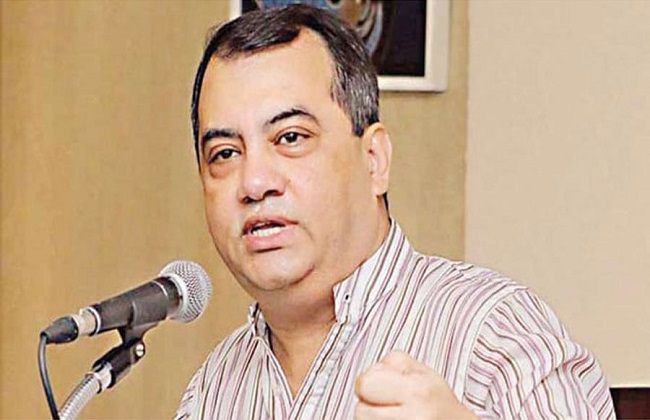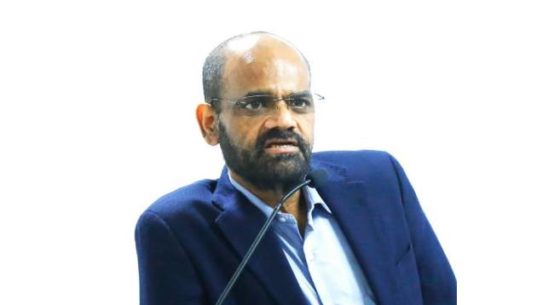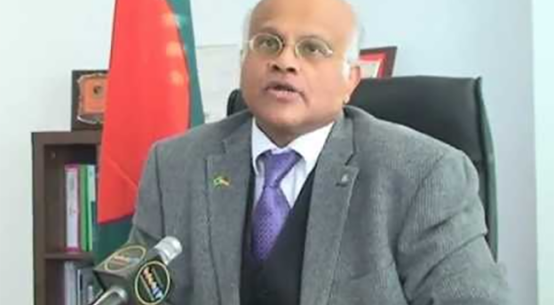
Saber Hossain Chowdhury was appointed Bangladesh’s new minister of environment, forest and climate change on Jan. 11, 2024. Part of the new government that will hold office for the next five years, he’s already made radical decisions on national environmental policy. Chief among these is the “100-day program” approach to tackling critical issues within an expedited time frame.
A former chairman of the parliamentary standing committee on environmental affairs, Chowdhury is no stranger to many of the pressing issues that Bangladesh faces today, from persistent air pollution to saltwater intrusion into the water table, to protecting the Sundarbans, the world’s largest mangrove forest.
Mongabay’s Abu Siddique spoke with Chowdhury to talk about his new approach to environmental policymaking, the importance of water conservation, and the thorny question of why, despite so much effort and funding for tiger conservation, the population of the big cat in Bangladesh continues to decline. The following interview has been lightly edited for length and clarity.
Mongabay: For the first time, Bangladesh plans a 100-day target to protect the environment. Why this is? Why are you considering reducing air pollution first?
Saber Hossain Chowdhury: Let me share some background on why we should have taken this target. First, I think it is to give a powerful message and signal to the public that we know how critical the situation is. When we respond to any crisis considering this, we must acknowledge that there is a crisis. So I think that is important because sometimes some government officials can’t be involved in that and reflect that they have not done a good job. So, a 100-day program is to identify the priority of the crisis in the context of the seriousness of the issues. We have to be honest with the public and let them know that these problems need to be fixed on a priority basis. Of course, the 100-day program is not the only thing the ministry is doing. These are the priorities for which we are putting more focus. And it will also serve as a basis for what we do over the next four and a half years. It is not just for transparency but also for ensuring accountability because when we finish our term, the people have a right to do a postmortem on whether we can deliver to meet the challenges we face today. At the same time, it is a clear signal to the various divisions and departments under the ministry that we need to act together, considering that business as usual is not an option for us. We need to step further.
In this case, we have identified air pollution as the area we prioritize the most. We have already identified the sources of indoor and outdoor air pollution. We have started to act. Among them, brick kilns are not the only sources of pollution; dust from construction activities and sulfur elements in diesel fuel in our transport system also play a role in air pollution. To solve the crisis the Ministry of Environment, Forest and Climate Change alone can’t solve the issue; it should be a whole government approach as the other different ministers are involved in the crisis. We are contacting the relevant agencies. What we have been doing till now is simply not enough. We must step up. As a part of this, we have already set up a complaint center where we are receiving around 400 calls daily. That means the problem is there, and people are serious about that, and we need to respond.
Mongabay: Brick kilns, transport and the energy sector are the major sources of air pollution. What is your plan to improve these?
Saber Hossain Chowdhury: The job of the Department of Environment under the ministry is to set the standard, and enforcement is not our responsibility. Here, we have two aspects. For enforcement, we need the cooperation of the local administration. A few days back, at the annual conference of the district commissioners, we sent a clear message in this regard. Also, we cooperate with the Bangladesh Road Transport Authority, responsible for looking into the fitness of vehicles running on the road. We need the support of the police, city mayors and elected representatives in legislatures across the country — that is why I said this is a total government approach.
Mongabay: Do you think the recent decision to phase out traditional bricks to save topsoil will work in the long run? Because the brickmakers aren’t happy with the decision.
Saber Hossain Chowdhury: The plan we have is very practical. We have targeted 500 brick kilns causing most of the damage. If you look at the average production capacity of each brick kiln, it’s about 5 million bricks each year. If we remove 500 brick kilns, 2.5 billion bricks will not be produced there. We can replace such bricks with alternative bricks made of other materials but not use topsoil from arable land. As per the statistics, we are losing 3 billion metric tons of topsoil each year for producing bricks, causing significant harm to agricultural productivity. If we go for the alternative, we can save the topsoil, and secondly, kilns are responsible for burning coal and wood, causing air pollution too. By implementing the plan, we will get a twofold advantage. It is not a question of who is happy or unhappy; we are encouraging the brick kiln owners to transform their method and come to a cleaner way. For this, the government’s financial agencies will develop different schemes to help them implement the transformation.
Mongabay: What about the clean energy target? According to the nationally determined contribution (NDC), Bangladesh is supposed to achieve at least 20% clean energy by 2030, but has yet to reach 5%.
Saber Hossain Chowdhury: Besides the NDC, the target in our Integrated Energy Master Plan is to ensure 40% clean and renewable energy by 2040. We have several events in the pipeline. We have an option to use offshore wind and solar power. The challenge of solar power is we don’t have enough land for that. However, we are looking for rivers and water bodies to use floating solar energy as a distinct possibility. The other area we are looking at is transforming diesel-run irrigation pumps to solar-run irrigation pumps. If we can do this properly, it will ensure 5,000 megawatts of clean energy. It is all about the political will, and our government has already canceled about 10 potential coal-fired power plants in the last few years. Moreover, Bangladesh plans to do so voluntarily despite our limited contribution to the global emissions scenario.


